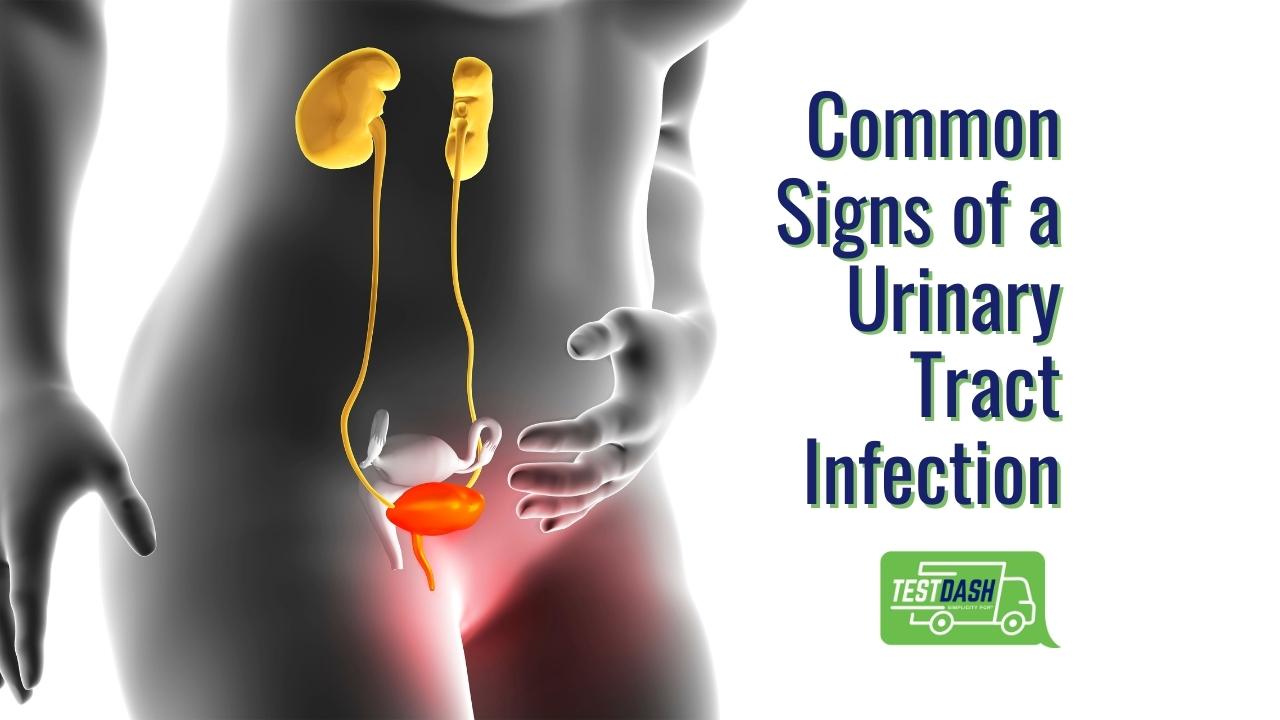Blog

Common Signs of a Urinary Tract Infection
Urinary tract infections (UTIs) are one of the most common types of infection, affecting millions of people each year. UTIs occur when bacteria enter the urinary system and cause inflammation or infection in any part of it.
While anyone can be affected by a UTI, women are more likely to suffer from them due to their anatomy. Common causes of UTIs include constipation, sexual intercourse, menopause, holding in your urine, dehydration, and tight underwear.
Fortunately, there are ways to reduce your risk of developing a UTI as well as treatments available if you do contract one. In this article, we will discuss what steps can be taken to reduce the risk of developing a UTI and what treatments are available for those who contract one.
What is a UTI and How it Occurs
A urinary tract infection (UTI) is an infection that occurs in any part of the urinary system, including the urethra, bladder, ureters, and kidneys. UTIs are caused by bacteria entering the urinary tract and causing inflammation or infection.
Women are more prone to developing UTIs due to differences in their anatomy compared to men. The shorter female urethra makes it easier for bacteria to enter the bladder and cause infection.
Constipation and UTIs
Constipation is a common cause of UTIs due to how bacteria travel through your body. When you’re constipated, fecal matter can back up in the rectum and enter into the urethra. From there, it can travel up to the bladder and cause a UTI.
To reduce your risk of developing a UTI from constipation, drink plenty of water and exercise regularly to stimulate regular bowel movements.
Sexual Intercourse
Sexual intercourse is another common cause of UTIs, particularly in women. During sexual intercourse, bacteria can travel up the urethra and enter the bladder, leading to infection.
To reduce your risk of contracting a UTI from sex, it’s important to practice safe sex by using condoms and lubricants. Additionally, urinating before and after sex can help flush out any bacteria that may have been introduced.
Menopause
Menopause can be a contributing factor to UTIs because the decrease in estrogen causes changes to the vagina and urethra which make them more susceptible to infection. Holding in your urine for long periods can also contribute to UTIs in women going through menopause.
To reduce the risk of developing a UTI during menopause, it’s important to practice good hygiene by wiping front-to-back and avoiding tight underwear. Additionally, drinking plenty of water and urinating when you feel the need will help flush out any bacteria that may have been introduced.
Dehydration
Being dehydrated can also increase your risk of developing a UTI. Dehydration causes the urine to become more concentrated, which makes it easier for bacteria to flourish.
To reduce your risk of getting a UTI from dehydration, make sure you’re drinking plenty of water throughout the day.
Tightly Fitting Underwear
Wearing tight or uncomfortable underwear can increase your risk of developing a UTI. Tightly fitting underwear can irritate the urethra, making it easier for bacteria to enter and cause infection.
To reduce your risk of getting a UTI, wear breathable, cotton underwear.
Treatment
For those who do contract a UTI, there are treatments available. Depending on the severity of the infection, your doctor may prescribe antibiotics to help clear up the infection. Additionally, drinking plenty of water and cranberry juice can help flush out any bacteria that may be present in the urinary tract.
It’s important to be aware of what can cause a UTI and how you can reduce your risk. Constipation, sexual intercourse, menopause, holding in urine, dehydration, and tight underwear are all common causes of UTIs. Drinking plenty of water throughout the day and wearing breathable cotton underwear will help prevent bacteria from entering the urinary tract and causing infection.
If you do develop a UTI, it’s important to speak with your doctor as symptoms may worsen over time.
At-Home Testing Using TestDash
With TestDash, doctors can make their patients’ lives easier by ordering an at-home UTI test. Tests can be ordered 24/7/365. Ordering with TestDash ensures a simple process for patients and physicians.
Physicians – Text “Enroll” to 513-818-1866 to get started with TestDash today!
Patients – Talk to your doctor about TestDash and see if it would be a good fit for you!
TestDash is here to provide fast, convenient, and accurate PCR test deliveries to Greater Cincinnati. To learn more about TestDash, visit us on Facebook, Instagram or LinkedIn!

